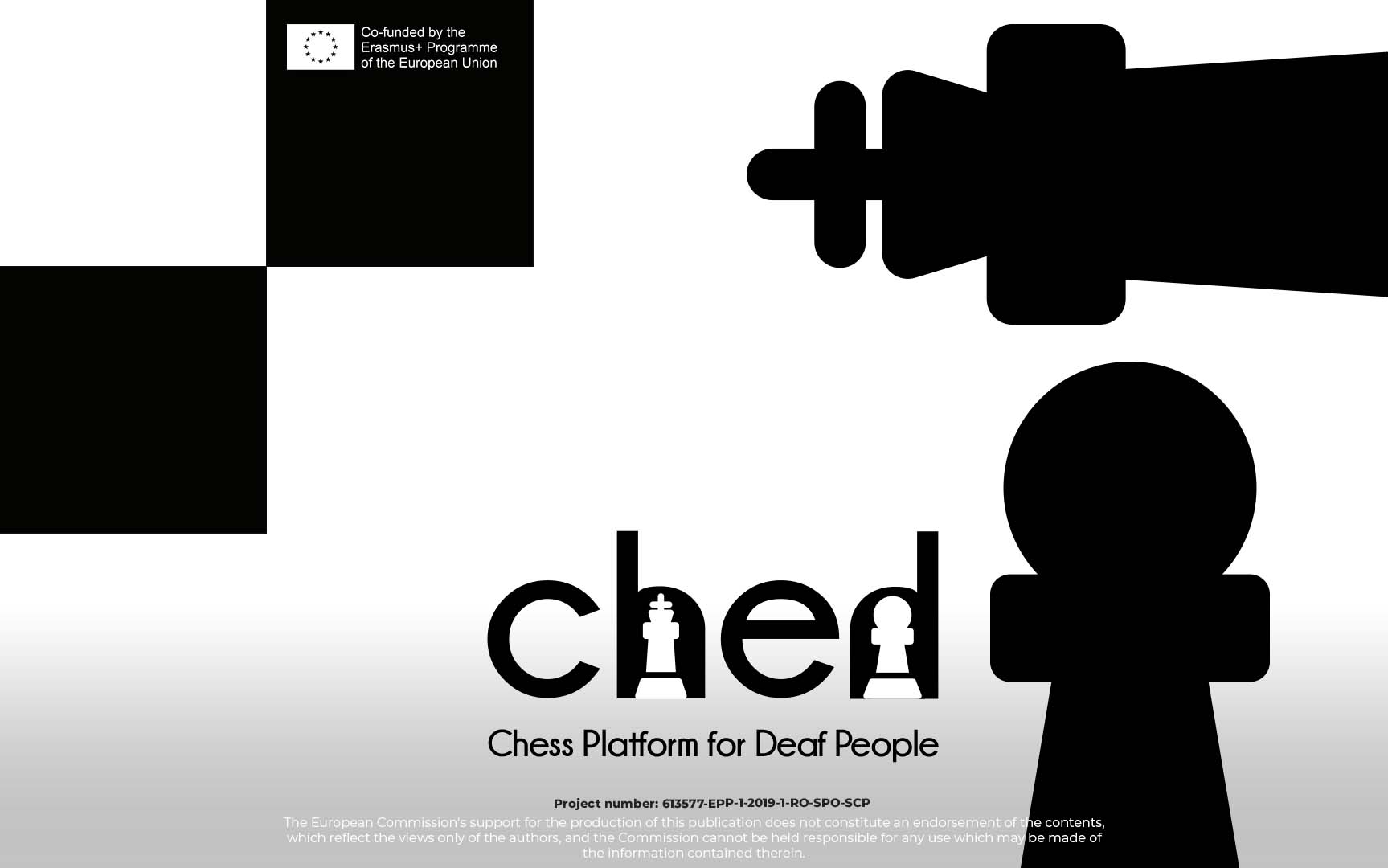CHED
The European and national report to meet the needs of deaf people in sport

CHED – “Chess platform for deaf people” is a KA2 Erasmus+ project (project number: 613577-EPP-1-2019-1-RO-SPO-SCP), which aims to:
- To contribute to the elimination of existing barriers in mass sports for deaf people
- Support sports activities for people with disabilities
- Propose an interactive online platform to teach the sport of chess, adapting it to deaf people through the sign language
- Promote social inclusion in and through sport
- Increasing the self-confidence and empowerment of deaf people
Why chess?
Chess is considered the sport of the mind and the “sport of silence”, through which it’s possible to develop sport, social and cognitive skills, as well as overcome barriers to isolation and communication.
To reach these objectives, a need analysis has been realized for each country that is part of the project Consortium, such as Romania, Italy, Armenia, Poland, Greece, Turkey and Ireland. The purpose was to investigate the current situation of access to sport (in particular to chess) for deaf people, at national and European level. This investigation has not been carried out just through surveys to people who are deaf and/or actively engaged in chess or sports activities, but also analysing the history of sign languages and their accessibility, as well as sports laws and regulations for the addressed target group.
The results of each country have been incorporated in national reports and then, in the European one, to give an overall overview of the current European situation of the deaf community.
Through surveys, interviews and discussions, it’s emerged that most of participants think there are existing barriers to sports. According to further investigations, the main reasons are related to:
- The lack of learning opportunities;
- The insufficient availability of equipment and facilities;
- The lack of funding.
These factors are the same in chess, as well as the most common solutions proposed, among which a better accessibility support, more funding and more training. Besides, the creation of more chess clubs has been suggested by the 16.0% of participants.
The reports are very important to raise awareness about the lack of inclusion of people with disabilities, especially in sport. The analysis also motivated the partners even more to work hard to achieve the project results and ensure its quality.
If you want to know more about the investigation, you can read the reports on the project web site.
On 9th December, there will be an international network event, in which the Consortium will talk about the project and share their expertise. If you want to participate, or just stay tuned, follow the project Facebook and Youtube social media!